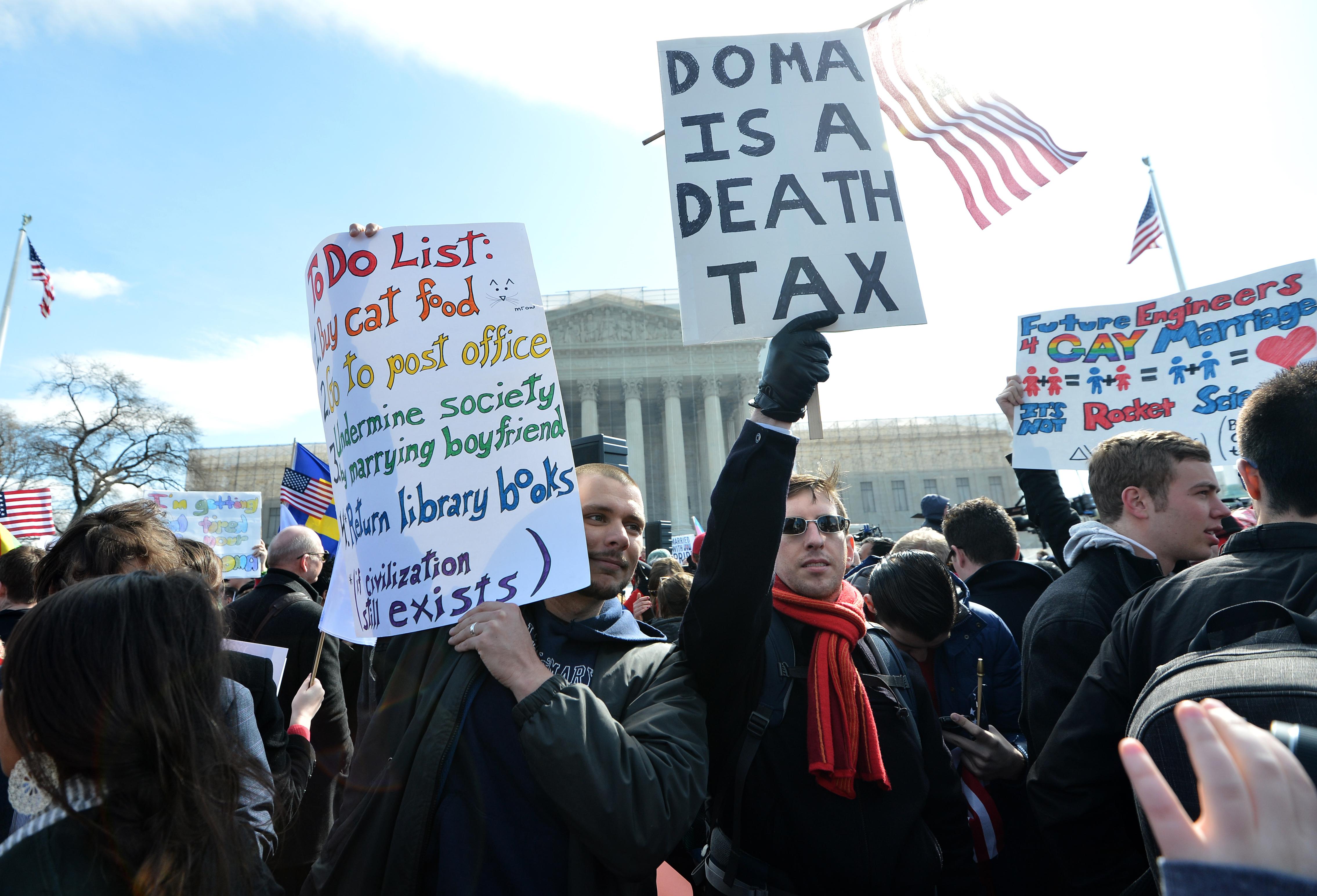Ross Douthat wants marriage equality proponents to magnanimously admit that moves toward equal marriage rights for same-sex couples really has undermined traditional marriage and perhaps just say it’s a price worth paying. He references this great early gay marriage debate at Slate between Andrew Sullivan and David Frum from 1997 and I think that’s a great place to understand the real hypothetical. Suppose everyone had read that and Frum had simply triumphed. Sullivan, humilitated, abandoned his advocacy for marriage equality and gay rights groups never embraced the cause. Everyone just conceded that whatever you think of gay and lesbian people, the whole point of marriage is to—in Douthat’s words—deal with “gender difference and procreation” so same-sex couples should just worry about something else.
To understand that world, I think about what would happen if one of the restaurants in my neighborhood announced a new “no gays allowed” policy. That’d be a horrible business decision. Not just because a lot of gay people live in Logan Circle and would vanish as customers, but because approximately none of the straight people living in Logan Circle would patronize such a business either.
Now of course here in 2013 there are still lots of communities in America where a “no gays allowed” business might be viable. But there are fewer than there were in 2003 and many fewer than there were in 1983 when norms of the closet still ruled the day in the vast majority of the country. And if there was a stable and clearly unchanging consensus that marriage was a straights-only institution solely about procreation and gender difference, the steady march of public opinion on gay and lesbian equality would still have moved forward. Straight people would be uncomfortable patronizing discriminatory marriage norms, and feminist skepticism that marriage can be made compatible with a modern concept of gender equality would be greatly enhanced. Moves to provide the concrete material benefits of official coupledom in terms of health insurance, inheritance, joint property ownership, and even adoption would still continue apace and secularly minded heterosexual couples would increasingly avail themselves of these para-marriage institutions.
The point is—when the level of discriminatory attitudes in society changes, institutions either need to change to accommodate that or else suffer the consequences. It’s true for restaurants and it’s true for marriage too. There are lots of married couples in Logan Circle—both gay and straight—and the available alternative world isn’t one where the gays are civilly unioned and the straight women are barefoot and pregnant; it’s one in which the kind of people who live here just don’t get married. Maybe social conservatives would prefer that. Maybe they don’t really want people like my wife and I in their married people’s club anymore than they want gay or lesbian couples. But I think it’s nice for us to all be allowed in.
